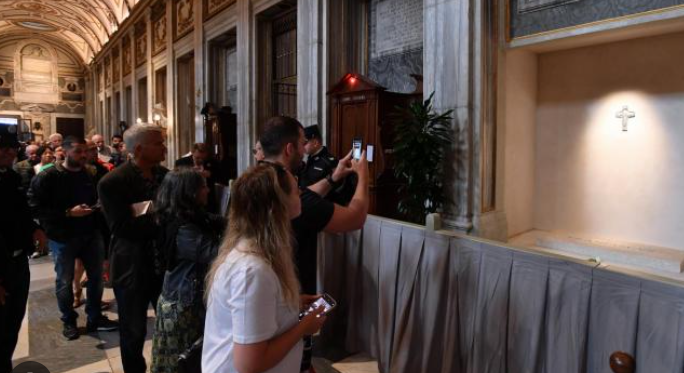WASHINGTON (Reuters) – The U.S. Congress will not vote on a bill to speed the introduction of self-driving cars before it adjourns for the year, a blow to companies like General Motors Co and Alphabet Inc’s Waymo unit, key senators said on Wednesday.
A sign marks part of a route used to test a driverless electric shuttle at the University of Michigan in Ann Arbor, Michigan, U.S. March 7, 2018. REUTERS/Paul Lienert
Congress will also not take up a proposal pushed by GM and Tesla Inc to extend or expand a $7,500 tax credit for electric vehicles, the aides said.
To win passage in the final days, the measures had to be attached to a bill introduced Wednesday to fund government operations, but they were not. Senators conceded the funding bill, which could be approved as early as Wednesday by the U.S. Senate, was the only way forward before Congress adjourns.
Republican Senator John Thune, who chairs the Commerce Committee, and Senator Gary Peters, a Michigan Democrat, led the battle to win approval for more than a year and vowed Wednesday to try again next year.
Thune said it is a “problem” if Congress does not act in 2019. “The technology is going to keep going,” Thune said. “We’ll start this up again.”
Peters warned that the United States could get surpassed on self driving vehicles by China, South Korea and others who “are betting big on the technology and they are developing the regulatory framework to accommodate it.”
Automaker lobbyists say the measures will face tougher odds in 2019 when Democrats and Republicans will share control of Congress.
The Alliance of Automobile Manufacturers, a trade group, called the bill’s failure “a setback for the development and ultimate deployment of potentially life-saving technologies, and leaves many unanswered questions on how this technology will be regulated.”
The tax credit for Tesla buyers will fall to $3,750 on Jan. 1 and will phase out entirely by the end of 2019, the Internal Revenue Service said on Friday. Senator John Barrasso a Republican who chairs the Senate Environment and Public Works Committee, proposed ending the EV tax credit entirely and plans to reintroduce the measure in 2019, while automakers plan to press for the credit’s extension.
The U.S. House of Representatives passed legislation in 2017 to speed the adoption of self-driving cars and bar states from setting performance standards, but the legislation stalled in the Senate. Despite concessions by automakers, the bill could not overcome objections from some Democrats who argued it did not do enough to resolve safety concerns.
Automakers may instead turn to the National Highway Traffic Safety Administration (NHTSA), which has said it plans to make it easier to test self-driving vehicles.
In October, NHTSA said it was considering a pilot program to allow real-world road testing for a limited number of vehicles without human controls.
GM in January filed a petition seeking an exemption to use fully automated vehicles as part of a ride-sharing fleet it plans to deploy in 2019, but the agency has not yet acted on it. On Tuesday, the agency said it was revising its rules to no longer first declare petitions “complete” before publishing a summary of the request.
Reporting by David Shepardson; Editing by Steve Orlofsky and Alistair Bell






Leave a Reply